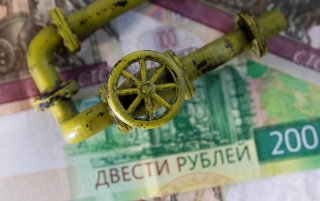EU Announces Gas Rationing as Energy Crisis Continues
The European Commission's plan calls for all EU nations to reduce their gas use by 15 percent.
The European Commission, the executive branch of the European Union, recommended on Wednesday that its member states cut their gas usage by 15 percent from August until March 2023, citing concerns that Russia could dramatically decrease its gas exports to Europe by the end of fall and prompt a major energy crisis in Western Europe.
The European Commission plan calls for all EU nations to reduce their gas use by 15 percent compared to their average gas consumption levels over the same months from 2016 until 2021. Europe uses natural gas as a heating fuel and in power plants for electricity generation; both uses are expected to be impacted by the proposed cuts.
Although Russia has denied planning to cut off gas supplies to the EU, and Russian president Vladimir Putin vowed that the Nord Stream 1 pipeline would be restored to operation after a brief maintenance period, the Russian leader also indicated that further gas exports to Europe could be threatened if the EU’s sanctioning of machine parts essential to Russian gas fields’ continued operation. Throughout June, Russia operated the pipeline at an estimated 40 percent of its total capacity, citing a delay in the return of a Gazprom gas turbine undergoing maintenance in Canada. The turbine is slated to be returned this week, although Gazprom claimed on Wednesday that it had not received the “official documents” needed to reinstall it in the pipeline.
Before Russia invaded Ukraine on February 24, Russian gas accounted for roughly 40 percent of the EU’s energy needs. Of that number, around one-third travels from Russia to Germany via the undersea Nord Stream 1 pipeline, which runs through international waters underneath the Baltic Sea as an alternative to traditional transit routes through Eastern Europe, including Ukraine.
The Nord Stream 1 pipeline was shut down on July 11, however, for annual maintenance, and although it returned to operation on Thursday morning, the Russian government has warned that further disruptions to supply might occur. Russia’s Gazprom energy giant, majority-owned by the government, has insisted that it is not to blame for any prospective energy shortages.
Following the European Commission’s announcement of the rationing plan, its member states are expected to consider the proposal, with further discussions scheduled to occur on Friday. EU nations are also expected to develop concrete plans to use alternative fuels and increase purchases from other gas exporters in the coming months.
Trevor Filseth is a current and foreign affairs writer for the National Interest.
Image: Reuters.

